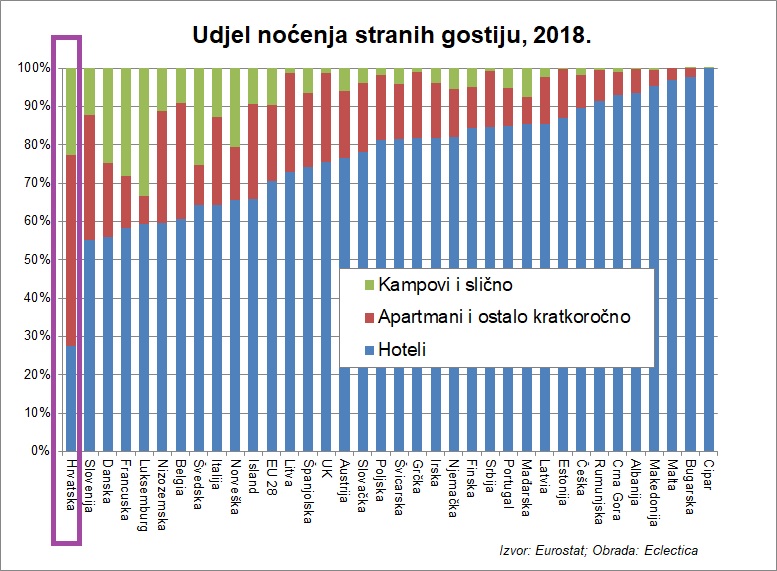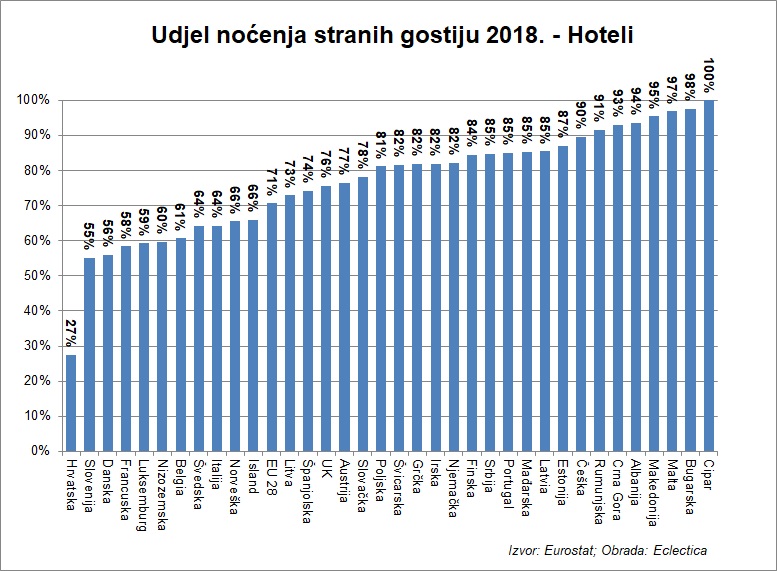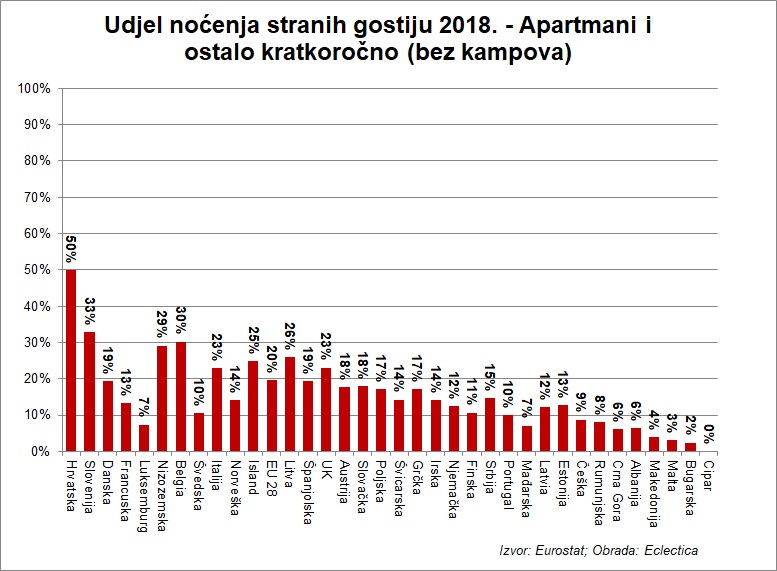Do Croatian Citizens Spend Summer Holidays in Croatia? - Yes, at Home
August 9, 2022 – Croatian tourism is booming although the prices have gone up in every aspect. More on that here. How do Croatian citizens stand, though, and what is it like for them?
As SiB reports, of the 11 and a half million tourists who visited Croatia this year, 1.6 million arrivals were domestic guests, which is 8 percent more than in the record year of 2019.
Nevertheless, the data of the exclusive research on holidays of Croatian citizens conducted for RTL by the agency Promocija plus (on a sample of 1300 respondents) show a slightly different picture of Croatia.
While the whole world is flocking to Croatia, Croats are not able to go and enjoy a holiday in their own country.
Namely, almost 60 percent (59.5 percent) of Croatian citizens have not been, nor do they plan to go on holiday outside their place of residence.
37 and a half percent (37.4 percent) have been or are planning to go, while almost 3 percent (2.7 percent) are not yet sure.
When we look at the region from which citizens travel the least, Dalmatia leads, understandably (67.3 percent), as it is a tourist destination itself.
However, almost the same percentage of Slavonian people will not go on holiday anywhere – as many as 67 percent answered that they had not been, nor do they plan to go. Northern Croatia is at around 62 percent (62.3 percent), while the least number of those who do not go anywhere are in Zagreb and its surroundings (41.6 percent).
Citizens certainly did use their annual holidays, so the survey looked at where they spent them: the results coincide with those who did not travel, so 62 percent (62.1 percent) of those surveyed spent their holidays at home. About 15 percent (14.8 percent) went to the seaside and stayed in a hotel, apartment, or camp; 8.5 percent stayed in their own property at the seaside, 6 percent stayed with friends and relatives (6.1 percent), while 4 percent (4.2 percent) travelled outside Croatia.
Now for the most important thing for many: how much did people spend on vacation? Most (13.1 percent) spent two to three thousand kuna on summer treats. About 10 percent (10.5 percent) spent up to four thousand.
Up to ten percent of those surveyed (10.3 percent) spent up to five thousand kuna.
When it comes to larger figures, five percent of domestic tourists spent up to ten thousand.
The fact that many did not care about it or did not want to even remember how much they spent shows that they properly enjoyed their summer holidays. Maybe that's the best way to be stress-free at least a little until the bills come due in the autumn.
NOTE: The survey was conducted for RTL by the agency Promocija plus from August 1 to 4 on a sample of 1,300 respondents. The standard error of the sample is +/-2.77 percent at the 95 percent confidence level.
For more, make sure to check out our Lifestyle section.
Big Capital - Blessing or Curse for the Glamorous Croatian Coast?
As Nenad Bakic/eclectica.hr writes on the 23rd of June, 2019, for a long time now, it's been well known in Croatia that big capital and the Adriatic coast go hand in hand.
In general, Croatia has long been ''heroically fighting against neoliberal capitalism'', and rather successfully at that. The only issue with that is the fact that the premise was wrong because it was just as "well known" that such a type of capitalism had already stepped ''into bed'' with us and for some, it was quite a comfortable situation, although the real truth in itself was completely different.
Not to take away from the many entrepreneurs and invention this country has given to the world, Croatia continues to take many an unimpressive title when it comes to anything outside of natural beauty, which is something we can't influence (thank God). When speaking economically, Croatia is the least free country in the European Union behind Greece, and of course, Croatia is rather tragically lagging behind in almost every single significant aspect, and people are leaving in their droves, and that demographic leaking tap isn't going to stop dripping.
Croatia's struggle against "big" capital in the tourism industry was a wrong move, though perhaps of a somewhat visionary nature.
The result of the situation with big capital on the Croatian coast is the following: The coast is concreted over by apartments, and the share of Croatian hotel accommodation is half the size of the of that of the next EU country.
This chart shows the share of accommodation for foreign tourists, according to overnight stays spent:

Specifically, for hotels it looks like this:

As you can see, the share of accommodation in Croatian hotels is exactly 1/3 of the European Union average.
For apartments, things look like this:

Bakić adds the fact that it is regularly forgotten that Croatia has an incredibly unique advantage, and it's reachable by some 100 million people by car (the captive market). In addition, real tourism is a capital and a work-intensive activity, and because of the Croatian shortage of labour which is a result of the demographic crisis and issues with the payment of living wages, hotels are up on their feet. For apartments, this is much less important.
You can follow more from Nenad Bakić on his Eclectica website.
Make sure to follow our dedicated lifestyle page for more information on Croatian tourism and much more.


